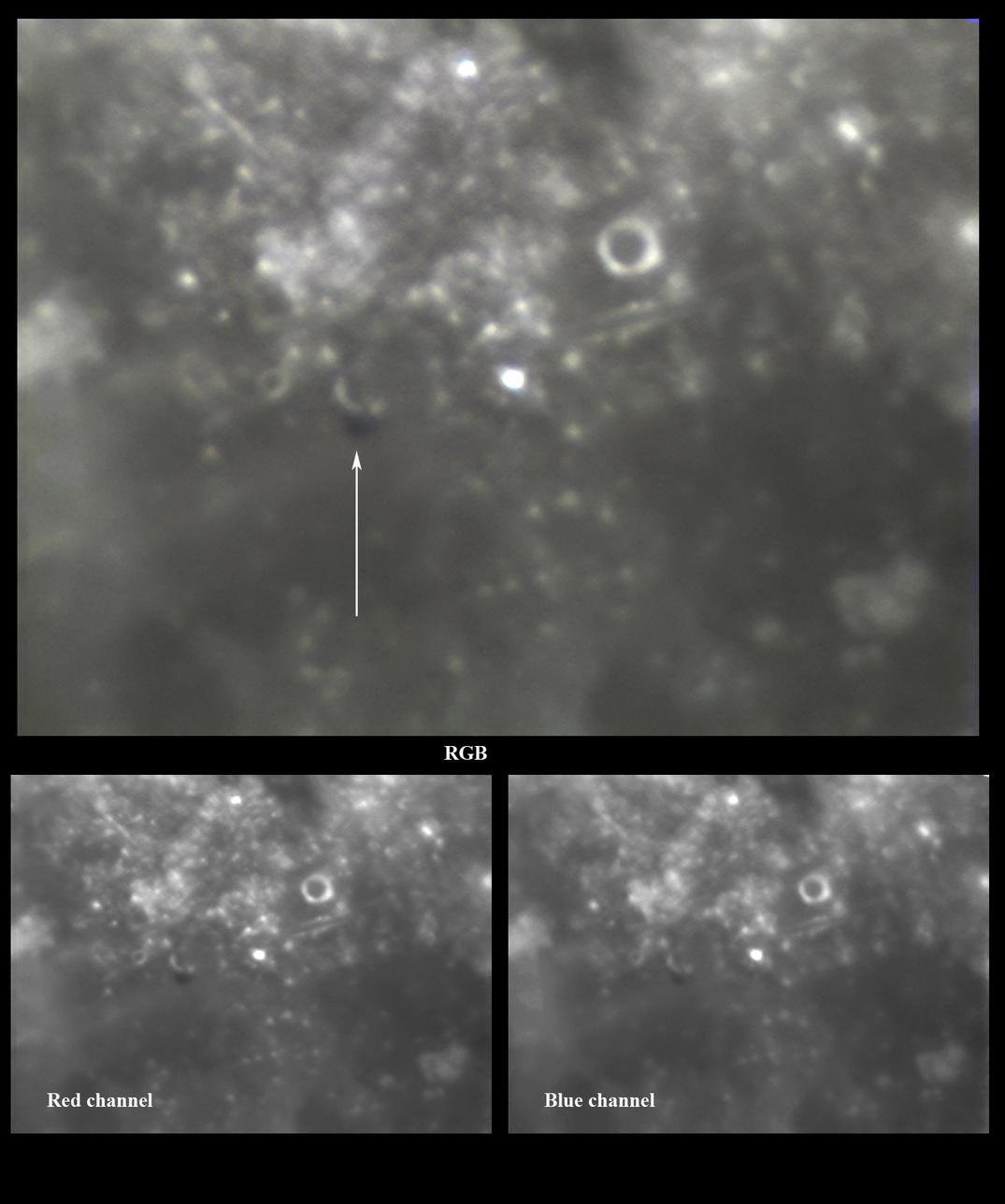Difference between revisions of "June 16, 2014"
| Line 6: | Line 6: | ||
<em>image by Raffaello Lena and Carmelo Zannelli, GLR group, Italy.</em><br /> | <em>image by Raffaello Lena and Carmelo Zannelli, GLR group, Italy.</em><br /> | ||
<br /> | <br /> | ||
| − | <span style="font-family: Arial,Helvetica,sans-serif;">[http://lpod. | + | <span style="font-family: Arial,Helvetica,sans-serif;">[http://www2.lpod.org/wiki/June_3,_2014 Recently,] a campaign to observe Yangel lunar pyroclastic deposit (LPD) was organized by Raf Lena. GLR group has collected several images.The LPD was previously identified by Barry Fitz-Gerald and myself, and was recently [http://www.sciencedirect.com/science/article/pii/S0032063314000166 published] in the "Planetary and Space Science" journal. A first response was received by Stefan Buda in the LPOD dated [http://www2.lpod.org/wiki/June_10,_2014 June 10, 2014]. Several images were received by members of the GLR group. The LPDs are clearly detectable under higher solar illumination near full Moon. Carmelo Zannelli, following my suggestions, has imaged the dark spot corresponding to the pyroclastic deposit on June 11, 2014 from Palermo Italy. I studied the image and the LPD is clearly evident in its extension in the RGB image with the obscuring effect on the underlying topography. Moreover, it is blue in color according to the spectral data of Clementine and Selene, is reported in the article we [http://www.sciencedirect.com/science/article/pii/S0032063314000166 published]. You can see in the insert of the image that the LPD is more prominent and dark in the Red channel if compared with the Blue channel </span>(being of blue color in the surface). <span style="font-family: Arial,Helvetica,sans-serif;">We will be happy to receive further images for our analysis.</span><br /> |
<br /> | <br /> | ||
<em>[mailto:gibbidomine@libero.it Raffaello Lena] and Carmelo Zannelli</em><br /> | <em>[mailto:gibbidomine@libero.it Raffaello Lena] and Carmelo Zannelli</em><br /> | ||
| Line 16: | Line 16: | ||
<strong>Related Links</strong><br /> | <strong>Related Links</strong><br /> | ||
<br /> | <br /> | ||
| − | <em>[ | + | <em>[[21st Century Atlas of the Moon|21st Century Atlas]]</em> chart 11.<br /> |
<br /> | <br /> | ||
<p><b>Yesterday's LPOD:</b> [[June 15, 2014|Probing the Moon]] </p> | <p><b>Yesterday's LPOD:</b> [[June 15, 2014|Probing the Moon]] </p> | ||
Latest revision as of 07:30, 28 October 2018
Spot Spotted

image by Raffaello Lena and Carmelo Zannelli, GLR group, Italy.
Recently, a campaign to observe Yangel lunar pyroclastic deposit (LPD) was organized by Raf Lena. GLR group has collected several images.The LPD was previously identified by Barry Fitz-Gerald and myself, and was recently published in the "Planetary and Space Science" journal. A first response was received by Stefan Buda in the LPOD dated June 10, 2014. Several images were received by members of the GLR group. The LPDs are clearly detectable under higher solar illumination near full Moon. Carmelo Zannelli, following my suggestions, has imaged the dark spot corresponding to the pyroclastic deposit on June 11, 2014 from Palermo Italy. I studied the image and the LPD is clearly evident in its extension in the RGB image with the obscuring effect on the underlying topography. Moreover, it is blue in color according to the spectral data of Clementine and Selene, is reported in the article we published. You can see in the insert of the image that the LPD is more prominent and dark in the Red channel if compared with the Blue channel (being of blue color in the surface). We will be happy to receive further images for our analysis.
Raffaello Lena and Carmelo Zannelli
Note from MC: This LPD is difficult to observe, especially in marginal seeing conditions which I had here on the three nights over this past full Moon. I was able to detect it with my 8" SCT in images at f/10, but it is very small and only by knowing it is there can you point it out in the images. The images above by Raf and Carmelo and in previous LPOD by Stefan, and other contributions to the GLR are very good indeed, and represent a notable achievement on the part of Raf and his team of GLR group of observers.
Technical Details
June 11, 2014 21:50 UT, CCD camera PGR Flea3 Mono (ris. 640x480) Barlow 2x Baader-Zeiss, telescope Celestron C-14 starbright with Baader LRGB filters.
Related Links
21st Century Atlas chart 11.
Yesterday's LPOD: Probing the Moon
Tomorrow's LPOD: Strawberry Moonlings
COMMENTS?
Register, Log in, and join in the comments.



